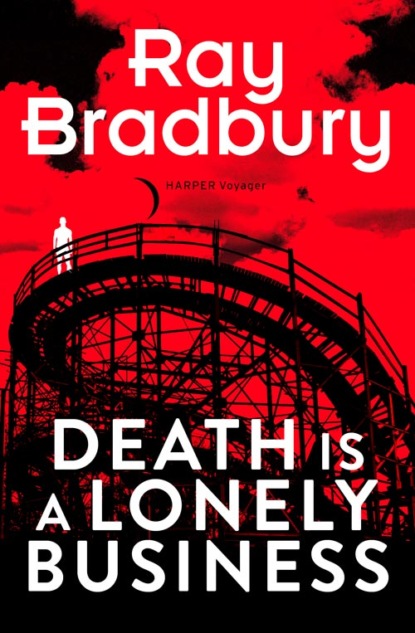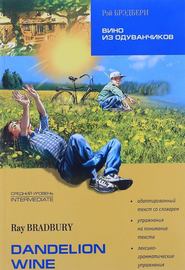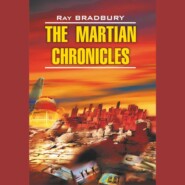По всем вопросам обращайтесь на: info@litportal.ru
(©) 2003-2024.
✖
Death is a Lonely Business
Настройки чтения
Размер шрифта
Высота строк
Поля
“What are you doing here?”
“Aren’t citizens supposed to show up if they can solve a murder?”
“Where do you see murders?” Crumley eyed the landscape, and sure enough there were none. “Next subject?”
“You don’t want to hear what I have to say?”
“I’ve heard it all before.” Crumley brushed by me and headed for his car parked at the curb. “Every time anyone drops dead of a heart attack or trips over his shoelaces in Venice, there’s someone there the next day to tell me, sixteen to the dozen, how to solve the stopped heart or retie the shoelaces. You’ve got the heart-attack shoelace look about you, and I didn’t sleep last night.”
He kept going and I ran after, for he was doing the Harry Truman 120-steps-to-the-minute march.
He heard me coming and called over his shoulder, ‘Tell you what, young Papa Hemingway—”
“You know what I do for a living?”
“Everyone in Venice knows. Every time you got a story in Dime Detective or Flynn’s Detective, the whole town hears you yelling down at the liquor store newsrack, pointing at the magazines.”
“Oh,” I said, the last of the hot air going out of my balloon. Grounded, I stood across the car from Crumley, biting my lower lip.
Crumley saw this and got a look of paternal guilt.
“Jesus H. Christ,” he sighed.
“What?”
“You know the one thing that gripes my gut about amateur detectives?” said Crumley.
“I’m not an amateur detective, I’m a professional writer with big antennae that work!”
“So you’re a grasshopper who knows how to type,” said Crumley, and waited for my wince to die. “But if you’d been around Venice and my office and the morgue as many years as I have, you’d know that every vagrant who wanders by or any drunk who stumbles in is full of theories, evidence, revelations enough to fill a Bible and sink a Baptist Sunday-outing picnic boat. If we listened to every maundering preacher who fell through the jail doors half the world would be under suspicion, one third under arrest, and the rest fried or hanged. That being so, why should I listen to some young scribe who hasn’t even begun to make his name in literary history”—again my wince, again he waited—“who just because he finds a lion cage full of accidental drowning thinks he has stumbled on Crime and Punishment and feels like Raskolnikov’s son. End of speech. Respond.”
“You know Raskolnikov?” I said, in amaze.
“Almost before you were born. But that doesn’t buy horseflakes. Plead your case.”
“I’m a writer, I know more about feelings than you do.”
“Balls. I’m a detective, I know more about facts than you do. You afraid a fact will confuse you?”
“I—”
“Tell me this, kiddo. Anything ever happen to you in your life?”
“Anything?”
“Yeah, I mean anything. Big, in between, small. Anything. Like sickness, rape, death, war, revolution, murder.”
“My mother and father died—”
“Peacefully?”
“Yes. But I had an uncle shot in a holdup once—”
“You see him shot?”
“No, but—”
“Well, that don’t count, unless you see. I mean, you ever find anything like men in lion cages ever before?”
“No,” I said at last.
“Well, there you have it. You’re still in shock. You don’t know what life is. I was born and raised in the morgue. This is the first real touch of marble slab you ever had. So why don’t you quiet down and go away.”
He heard his own voice getting much too loud, shook his head, and said, “No, why don’t I quiet down and go away.”
Which he did. He opened the car door, jumped in, and before I could reinflate my balloon, was gone.
Cursing, I slammed into a telephone booth, dropped a dime in the slot, and called across five miles of Los Angeles. When someone picked up at the other end I heard a radio playing “La Raspa,” a door slammed, a toilet flushed, but I could feel the sunlight that I needed, waiting there.
The lady, living in a tenement on the corner of Temple and Figueroa, nervous at the phone she held in her hand, at last cleared her throat and said:
“Qué?”
“Mrs. Gutierrez!” I shouted. I stopped, and started over. “Mrs. Gutierrez, this is the Crazy.”
“Oh!” she gasped, and then laughed. “Sí, sí! You want to talk to Fannie?”
“No, no, just a few yells. Will you yell down, please, Mrs. Gutierrez?”
“I yell.”
I heard her move. I heard the entire ramshackle, rickety tenement lean. Someday, a blackbird would land on the roof and the whole thing would go. I heard a small Chihuahua tap-dance on the linoleum after her, built like a bull bumblebee and barking.
I heard the tenement outer porch door open as Mrs. Gutierrez stepped out onto the third floor and leaned to call down through the sunshine at the second floor.
“Aai, Fannie! Aai! It’s the Crazy.”
I called into my end, ‘Tell her I need to come visit!”
Mrs. Gutierrez waited. I could hear the second-floor porch creak, as if a vast captain had rolled out onto its plankings to survey the world.
“Aai, Fannie, the Crazy needs to visit!”
A long silence. A voice sprang sweetly through the air above the tenement yard. I could not make out the words.
“Tell her I need Tosca!”
“Tosca!” Mrs. Gutierrez yelled down into the yard.

















